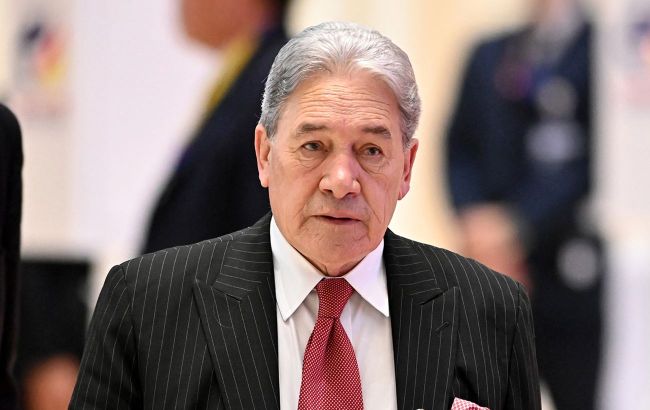New Zealand imposes new sanctions against Russia for war in Ukraine
 Photo: New Zealand Foreign Minister Winston Peters (Getty Images)
Photo: New Zealand Foreign Minister Winston Peters (Getty Images)
New Zealand has imposed a new package of sanctions against Russia as part of its ongoing response to the illegal invasion of Ukraine. These measures are aimed at organizations associated with Russia's occupation of the Zaporizhzhia Nuclear Power Plant, according to New Zealand's Foreign Minister Winston Peters.
“Russia’s continued illegal war of aggression against Ukraine is an assault on the rules-based order,” he says.
The Minister emphasized that the Russian occupation of Zaporizhzhya NPP poses a serious threat to nuclear safety and called on Russia to immediately withdraw its troops from the territory of Ukraine.
The new sanctions will affect five individuals and six legal entities involved in supporting the Russian invasion of Ukraine.
“The sanctioning of Belarusian actors represents a shared effort with our likeminded international partners to condemn and hold accountable those supporting Russia’s illegal actions,” the Minister adds.
Peters notes that New Zealand is acting in coordination with international partners, joining more than 35 countries that are also taking action against those who contribute to Russian aggression.
Since the adoption of the law on sanctions against Russia in March 2022, New Zealand has already imposed sanctions on more than 1700 individuals and legal entities, as well as many trade restrictions.
New Zealand's assistance to Ukraine
Since the beginning of Russia's full-scale invasion of Ukraine, New Zealand has consistently provided comprehensive support to Ukraine.
Wellington has imposed tough sanctions against Russian individuals and entities involved in the hostilities and provided significant financial and humanitarian assistance.
In February 2024 at the NATO summit in Washington, new aid packages were announced to strengthen Ukraine's defense capabilities and meet the humanitarian needs of its population.

